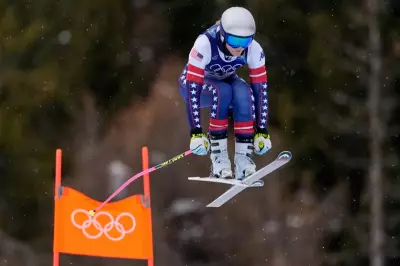
The world of professional cycling has been thrown into turmoil following a controversial and unprecedented decision by race officials at the Vuelta a España. The entire Israel Premier Tech (IPT) team was dramatically disqualified from Stage 12, a move that has sent shockwaves through the peloton and prompted fierce debate about consistency and fairness in the application of the rules.
The incident that sparked the furore involved veteran rider Michael Woods and a team car. Race commissaires deemed that Woods had held onto a so-called 'sticky bottle' – a bottle passed from a team car that provides a brief, illegal tow – for an excessively long period. In a stunning escalation, officials didn't just penalise Woods; they ejected the entire IPT squad from the stage.
Team Management Fires Back
Kjell Carlström, the team's general manager, did not hold back in his criticism of the ruling. He vehemently argued that the punishment was "completely disproportionate" to the alleged offence. Carlström pointed out that such bottle exchanges, while technically against the rules, are a common and often overlooked part of the sport, used to help riders regain contact with the peloton after a mechanical issue or crash.
His most grave warning was that this decision creates a "dangerous precedent." The fear within the IPT camp and echoed by other teams is that this sets a new standard where any minor infraction could now be met with the ultimate team sanction, creating a climate of uncertainty and fear for sports directors and riders alike.
A History of Inconsistency?
The controversy is deepened by a perceived inconsistency in the UCI's enforcement. Carlström was quick to highlight that just a day earlier, a rider from the rival Soudal Quick-Step team was involved in a similar incident yet only received a minor time penalty. This glaring discrepancy has led to accusations of arbitrary and selective punishment, undermining faith in the sport's governing body.
The disqualification has major sporting consequences. It effectively ended the Vuelta campaign for all IPT riders, including their general classification hopefuls and those targeting stage wins in the gruelling mountain stages that followed.
The Wider Implications for Cycling
This incident transcends the fate of one team in one race. It strikes at the heart of race regulation and culture within professional cycling. The 'sticky bottle' has long existed in a grey area – an open secret that is technically illegal but widely tolerated as a practical solution in a dangerous sport.
The UCI's sudden and severe enforcement in this single case, without clear communication or consistent application, questions whether this is the beginning of a genuine crackdown or merely an isolated overreaction. For team principals and riders, the message is confusing: are the rules now to be applied to the letter, and if so, will it be applied equally to all?
The fallout from this decision is likely to continue long after the Vuelta concludes, potentially forcing a much-needed clarification of the rules and their enforcement to ensure fairness and preserve the integrity of the sport.





